Patient & Practice Resources
Images are not of actual patients
Tools and information for you and your adult patients with generalized myasthenia gravis (gMG)
Filter By Category:
Showing: All Resources
HCP Resources
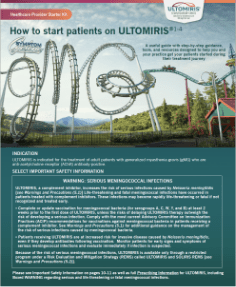
HCP Starter Kit
A kit designed to help you and your practice start the initiation process. This resource details how to start your patients on ULTOMIRIS® (ravulizumab-cwvz), including information about:
- The Initiation roadmap
- Dosing regimen
- Infusion information
- REMS program
- OneSource™ patient support
and more.
Download: HCP Starter Kit
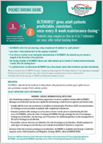
Dosing and Administration Guide
Step-by-step instructions for initiating ULTOMIRIS weight-based dosing.
Download: Dosing and Administration Guide
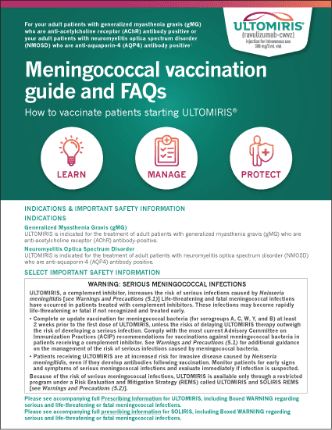
Vaccination Q&A Brochure
Answers to common questions about the vaccination requirements for ULTOMIRIS treatment.
Download: Vaccination Q&A Brochure
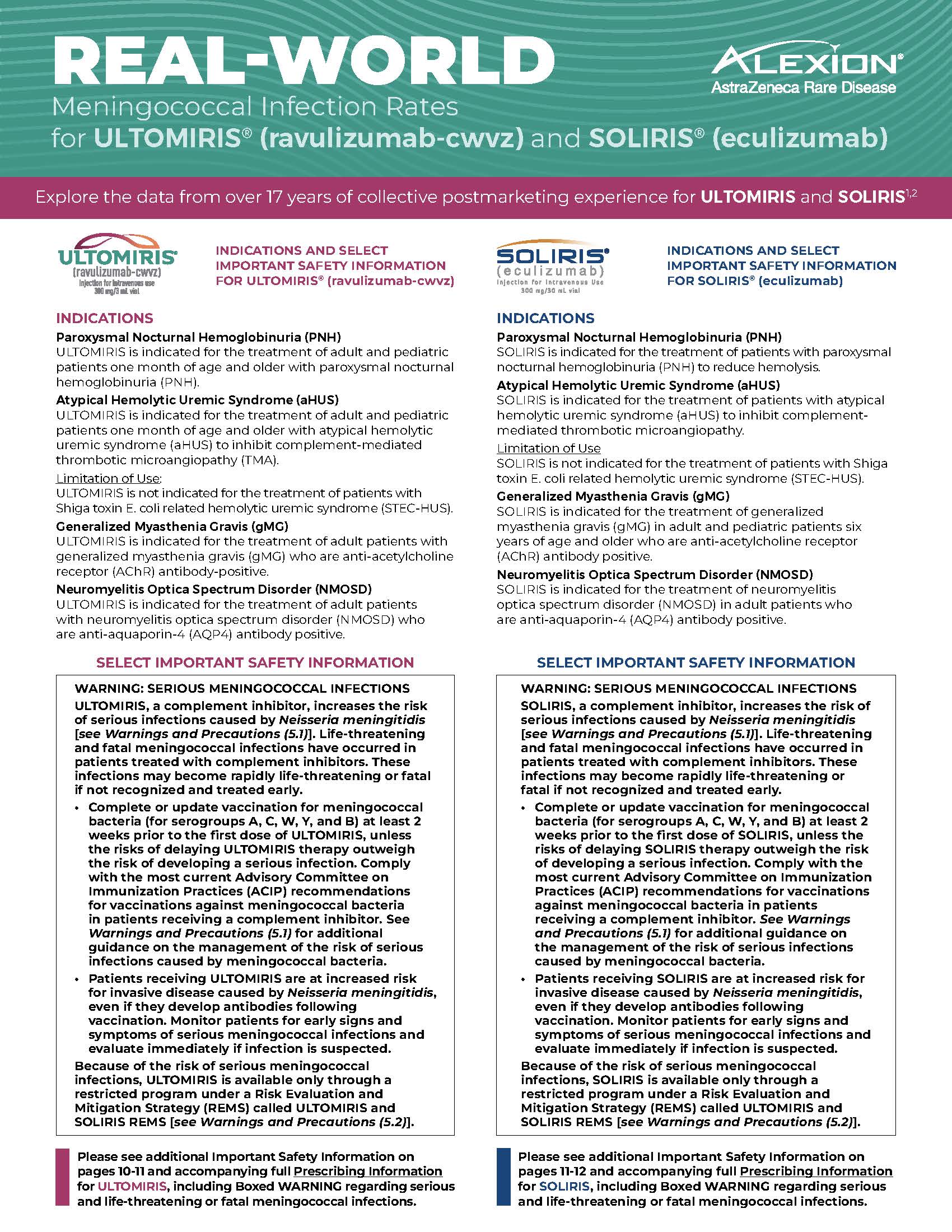
Meningococcal Infection Rates Brochure
Explore the data from over 14 years of postmarketing experience
Download: Meningococcal Infection Rates Brochure
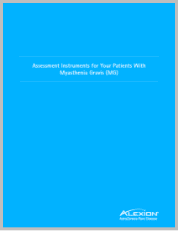
Assessment Tool Booklet
Tools to help you and your practice track patients’ symptoms over time.
Download: Assessment Tool Booklet
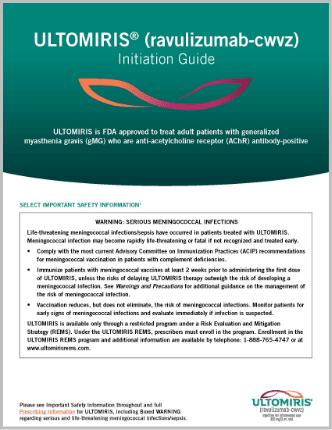
Initiation Guide
This comprehensive resource provides an overview of topics when commencing treatment for gMG, such as prescribing ULTOMIRIS for appropriate patients; dosing guidelines, including weight-based dosing; ordering, storing, and administering ULTOMIRIS; vaccination prior to ULTOMIRIS treatment; the REMS program; OneSource; and the CoPay Program.
Download: Initiation Guide
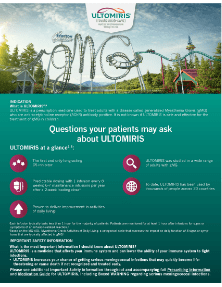
HCP Patient Discussion Guide
A discussion guide that provides patient-friendly answers to frequently asked questions about ULTOMIRIS.
Download: HCP Patient Discussion Guide

ULTOMIRIS Safety and Efficacy Brochure
This brochure provides further details on the safety profile and efficacy data of ULTOMIRIS.
Download: ULTOMIRIS Safety and Efficacy Brochure

Sample Letter of Medical Necessity
This is a sample letter that may be used to communicate why treatment with ULTOMIRIS is medically necessary.
Download: Sample Letter of Medical Necessity
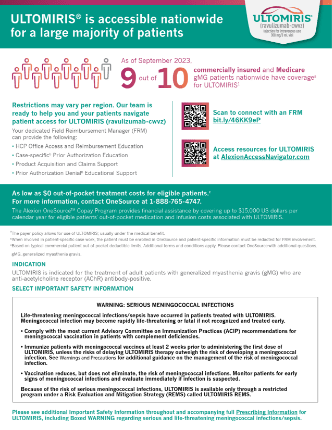
Access and Coverage Guide
This provides details about the access opportunities that gMG patients nationwide have available to them.
Download: Access and Coverage Guide
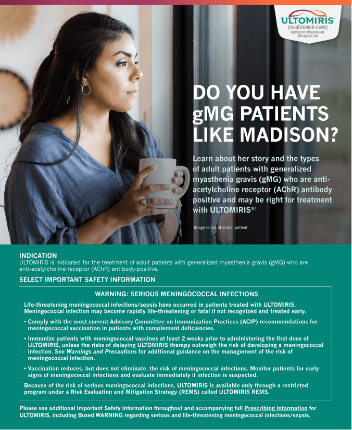
Patient Case Study: Using ULTOMIRIS in Recently Diagnosed Patients
Do you have gMG patients like Madison? Learn about her story and the types of patients for whom ULTOMIRIS might be appropriate.
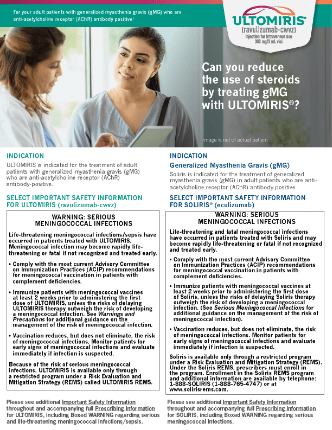
Guide to ULTOMIRIS and Corticosteroids in gMG
A brochure detailing the data on use of corticosteroids, and concomitant treatment with ULTOMIRIS.
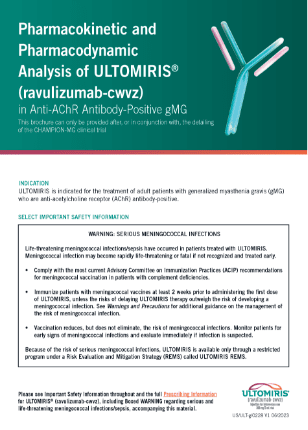
ULTOMIRIS Clinical Pharmacology Brochure
A brochure featuring ULTOMIRIS PK/PD data, including analysis of ULTOMIRIS data in anti-AChR antibody-positive gMG captured throughout the CHAMPION study.
Download: ULTOMIRIS Clinical Pharmacology Brochure
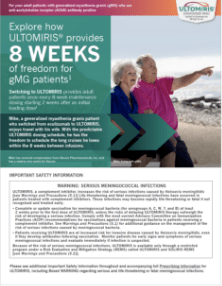
Considerations for Switching gMG Therapies
A pamphlet providing an overview for switching to ULTOMIRIS from another treatment.
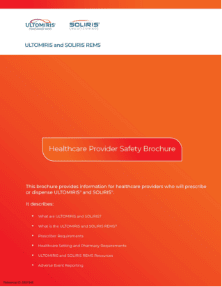
REMS Healthcare Provider Safety Brochure
This brochure provides information for healthcare providers who will prescribe or dispense ULTOMIRIS.
Download: REMS Healthcare Provider Safety Brochure
Patient Resources
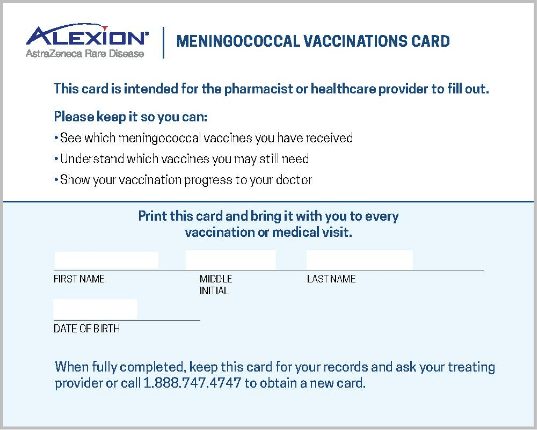
Vaccination Card
As part of the REMS program, this card highlights the risk of meningococcal infection for gMG patients taking ULTOMIRIS® (ravulizumab-cwvz) and underscores the importance of meningococcal vaccination.
Download: Vaccination Card
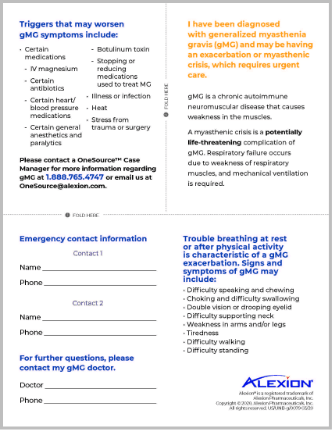
Patient ER Checklist
Patients treated with ULTOMIRIS should bring this resource with them on arrival to an emergency room for use by physicians and/or first responders.
Download: Patient ER Checklist

Patient Brochure
This brochure provides patients and caregivers with clear, concise information about ULTOMIRIS, including how it works and what they can expect when starting treatment.
Download: Patient Brochure
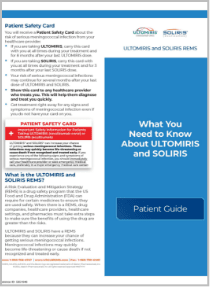
REMS Patient Safety Brochure
As part of the REMS program, it is essential to inform patients on ULTOMIRIS about the risk of meningococcal infection and steps to take in the case of adverse events.
Download: REMS Patient Safety Brochure
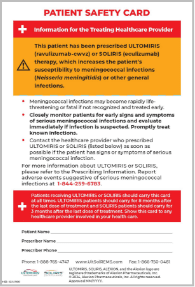
REMS Patient Safety Card
A feature of the REMS program, this card highlights the risk of meningococcal infection for gMG patients taking ULTOMIRIS and provides them information should adverse events occur.
Download: REMS Patient Safety Card
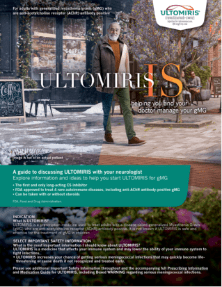
Patient-Doctor Discussion Guide
This guide provides patients with some common questions and talking points to discuss at their next healthcare appointment.
Download: Patient-Doctor Discussion Guide
AChR, anti-acetylcholine receptor; PD, pharmacodynamics; PK, pharmacokinetics; REMS, Risk Evaluation and Mitigation Strategy.